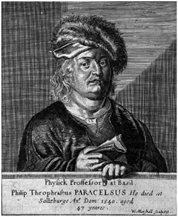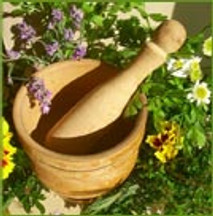Feb 4th 2025
History of Herbal Medicine

Hippocrates (460-377 B. C.) was known as the father of medicine. He was the first man who practice medicine as an art. Hippocrates is also known as the father of medical literature. Hippocrates believed in natural healing, to let nature do what it was created to do.
He made an oath that he would not give any medicine that would be harmful to the body. Hippocrates was an herbal practitioner; he did not use minerals. Hippocrates ways of treatment was used until the year A.D. 1500. During this time no physicians were unwise to use chemical poisoning of the body.
Hippocrates believed that only nature could heal the body and the physician was only nature’s helper. He used this belief in his practice, treating his patients with herbs, proper diet, fresh air, proper exercise, and attention to correct habits and living conditions. About 300 to 400 plants are mentioned in his writings and nearly a third of these plants are still in use today.
Chemistry
Towards the end of the 15th century a man by the name of William Bombast Von Hohenheim. He had a son by the name of Theophrastus Bombastus Von Hohenheim. He was taught in the same schools as his father but he got dissatisfied and left to go wonder around Europe. He was learning all he could about chemistry in its relation to medicine. He went to work in the mines of Tyrol. He saw there in the mines minerals being purified by other minerals from that he thought that the body could be done the same way.
When he would treat his patients, he used minerals but did not keep any records of the test. His ideas about the human body were that of a chemist. He believed that the stars and planets were the main influence that cause human illness and that all diseases should be treated with minerals. He later became known as the father of pharmacology.
He was one of the first men to give mercury to his patients. He used it in small and large doses, and also the Chinese were using it to treat ulcers. Even now the majority of doctors in the civilized world use minerals to purify the body.
The conventional doctors of today are successors of Hohenheim of the 1500th century. Herbalist in Great Britain called botanic practitioners and are successors of the Greek physicians, Galen & Hippocrates.
From 460 B.C. to A.D. 1500, we have no record of anyone giving poisonous minerals for the cure of diseases until Hohenheim. During those 1900 years there had been little deviation from the belief and teaching of Hippocrates that in nature there is strength to cure disease.
From 1526 to 1528, Hohenheim spoke at the university of Basel, but was let go because of his refusal to accept time honored traditions. Hohenheim burned the books of Galen and Hippocrates, threw out all of their ideas and went with chemically purifying the body with the use of minerals. Where ever he went he was met with opposition to his theories.
There are stories that he met his death in Salzburg, Austria where it is said he was thrown from a window by his rivals in 1541 at the age o f 50 or 51. Although he did not live long, he changed the practice of medicine. After his death many people took up the practice of treating illness with minerals instead of herbs, roots, and barks.


